Winter can be beautiful, with cozy sweaters, hot drinks, and maybe even a bit of snow. But for many people, it also brings dry, irritated, and dull skin. When temperatures drop, and the air gets drier, our skin often reacts negatively. In this guide, we’ll explore why skin tends to look worse in winter and simple ways to keep it healthy and glowing. So, let’s learn what’s happening when your skin looks worse in winter months and how to combat these seasonal skin issues.
Table of Contents
ToggleSection 1: Why Does Skin Look Worse in Winter?
Understanding the Science Behind Winter Skin Issues
- Low Humidity Levels
Winter air lacks moisture, and this low humidity can cause your skin to dry out faster than in warmer seasons. When there’s little moisture in the air, your skin loses its natural hydration more quickly. For more on how humidity affects skin, check out Harvard Health’s guide on skin care. - Indoor Heating Dries Out Skin
Heating systems are essential for keeping warm in winter, but they also dry out the air in your home, which can further dry your skin. The constant switch from cold, dry outdoor air to warm, dry indoor air can make your skin feel tight, rough, and irritated.
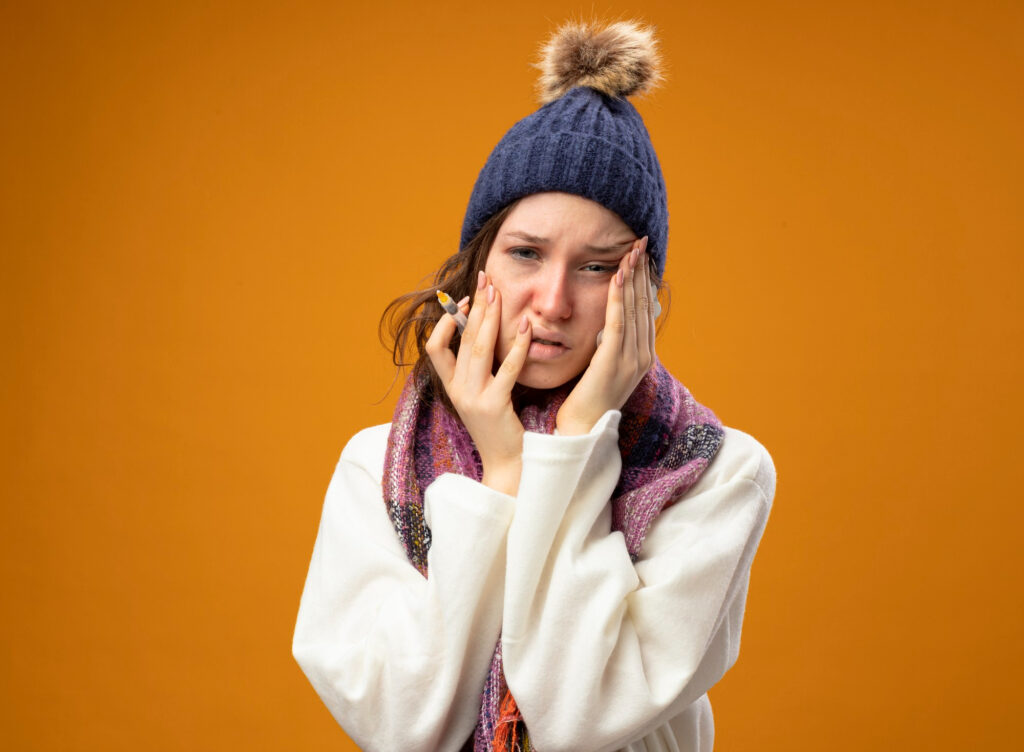
- Cold Temperatures Slow Oil Production
Cold weather slows down the skin’s natural oil production, which is essential for keeping skin moisturized. Without this oil barrier, skin becomes dry, cracked, and more sensitive. - Wind Exposure
Strong winter winds can strip away natural oils and damage the skin’s outer layer, leading to redness, dryness, and even painful cracks. You can read more about how wind affects skin at WebMD’s skincare tips. - Hot Showers and Baths
Although a hot shower feels great in cold weather, hot water can strip away the skin’s natural oils. Over time, this can make your skin even drier and more irritated.
Also Read: Best Travel Skincare for a Weekend Away
Section 2: Common Skin Problems During Winter
What Skin Conditions Get Worse in Winter?
- Dry Skin (Xerosis)
This is the most common issue people face in winter. Skin can feel tight, flaky, or even start to peel. Without moisture, dry skin can become rough and uncomfortable.
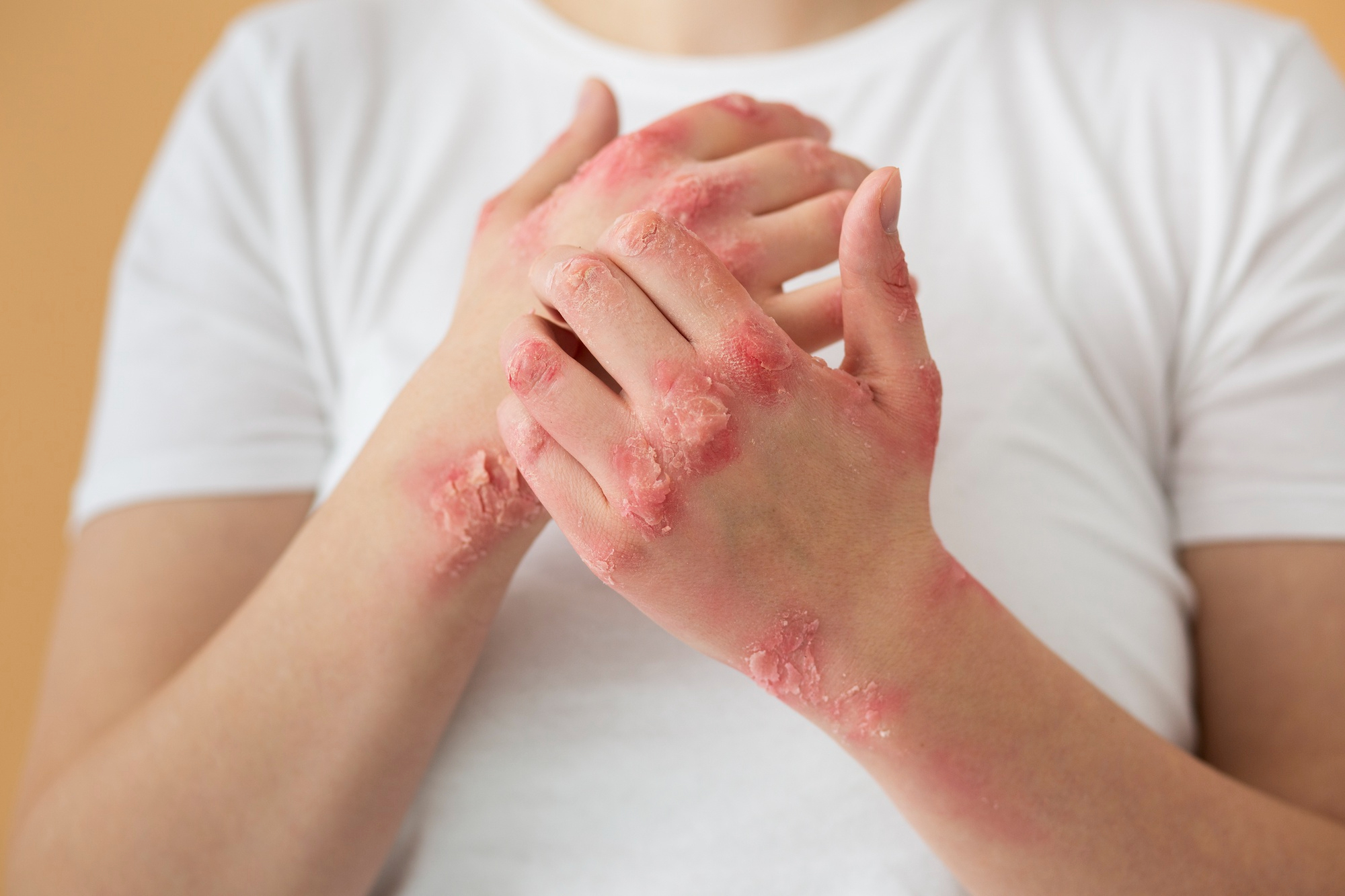
- Chapped Lips
Lips have delicate skin, making them more vulnerable to winter dryness. They can crack, peel, and even bleed in extreme cold. Check out this lip care guide for extra tips. - Redness and Irritation
People with sensitive skin may notice increased redness and irritation in cold weather, especially if they have conditions like eczema or rosacea. - Itchy Skin
Dry winter air can make skin itchy. When the skin’s moisture barrier is compromised, it leads to what is known as “winter itch.” Learn more about winter itch on Healthline.
Section 3: How to Manage Winter Skin Issues
Top Tips to Keep Your Skin Healthy and Hydrated
- Moisturize Regularly
Moisturizers help lock in your skin’s natural moisture. Opt for creams or ointments that are thicker and more hydrating, rather than light lotions. Look for ingredients like hyaluronic acid, glycerin, and ceramides, which help retain moisture. CeraVe’s Moisturizing Cream is highly recommended for winter use.
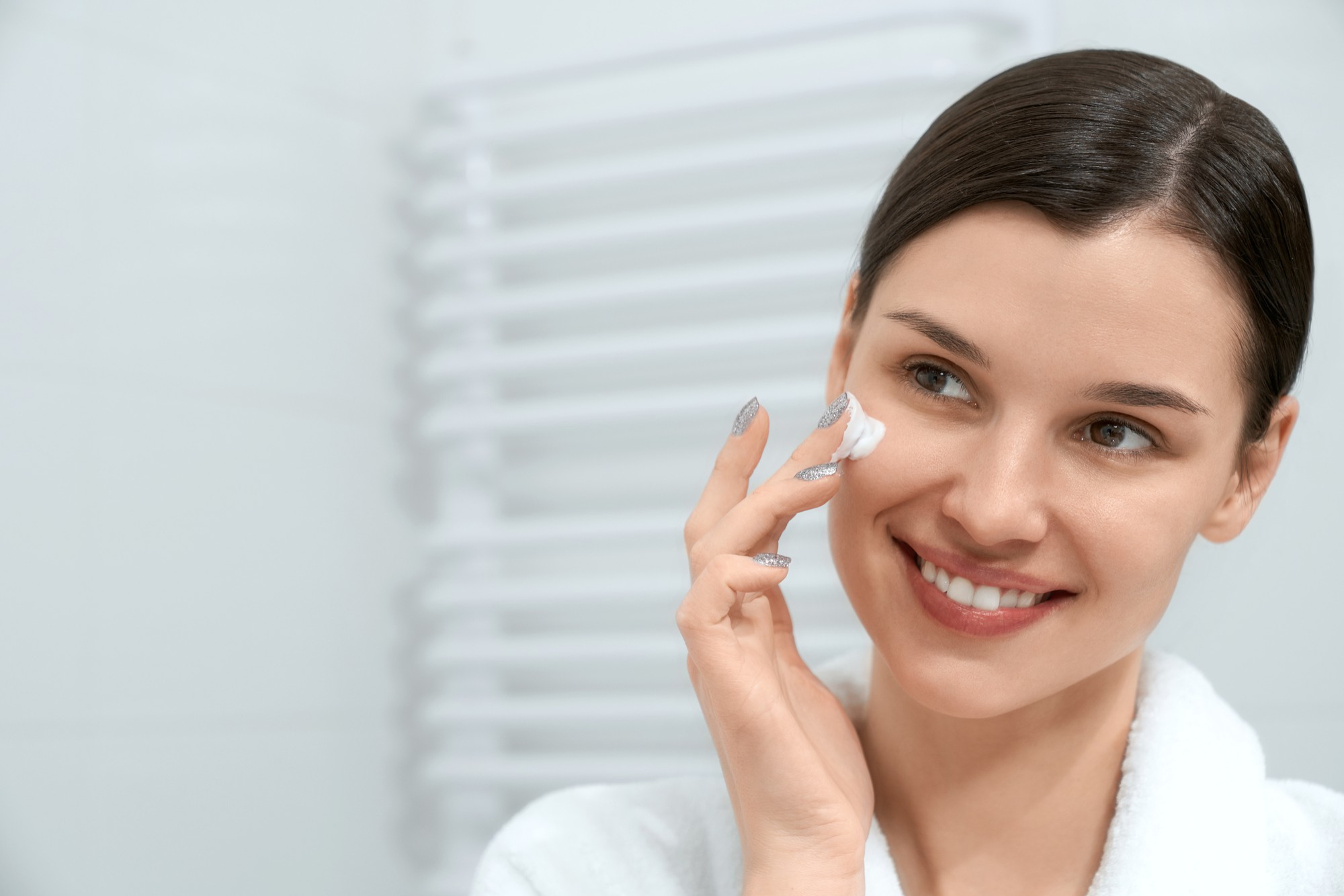
- Choose a Humidifier for Your Home
Humidifiers add moisture to the air, which helps your skin retain hydration. Place one in your bedroom and other frequently used areas of your home. For a range of options, check out Amazon’s humidifiers. - Use Sunscreen, Even in Winter
UV rays can still damage your skin in winter, even on cloudy days. Choose a broad-spectrum SPF 30 or higher. Find recommendations at Dermstore. - Avoid Hot Showers
Try to limit your shower to lukewarm water and avoid staying in too long. This helps protect your skin’s natural oils. - Drink Plenty of Water
Staying hydrated from the inside out is essential. While water alone doesn’t hydrate the skin, it helps the body maintain overall moisture levels.
Also Read: How to Take Care of Your Skin During Menopause
Section 4: Winter-Specific Skincare Routine
Adapting Your Skincare Routine for Cold Weather
- Switch to a Gentle Cleanser
Harsh cleansers can strip your skin’s oils, leaving it more prone to dryness. Opt for a gentle, hydrating cleanser during winter, like Cetaphil Gentle Skin Cleanser. - Incorporate Hydrating Serums
Hydrating serums with hyaluronic acid can give your skin an extra moisture boost. Consider using a product like The Ordinary’s Hyaluronic Acid Serum for added hydration.
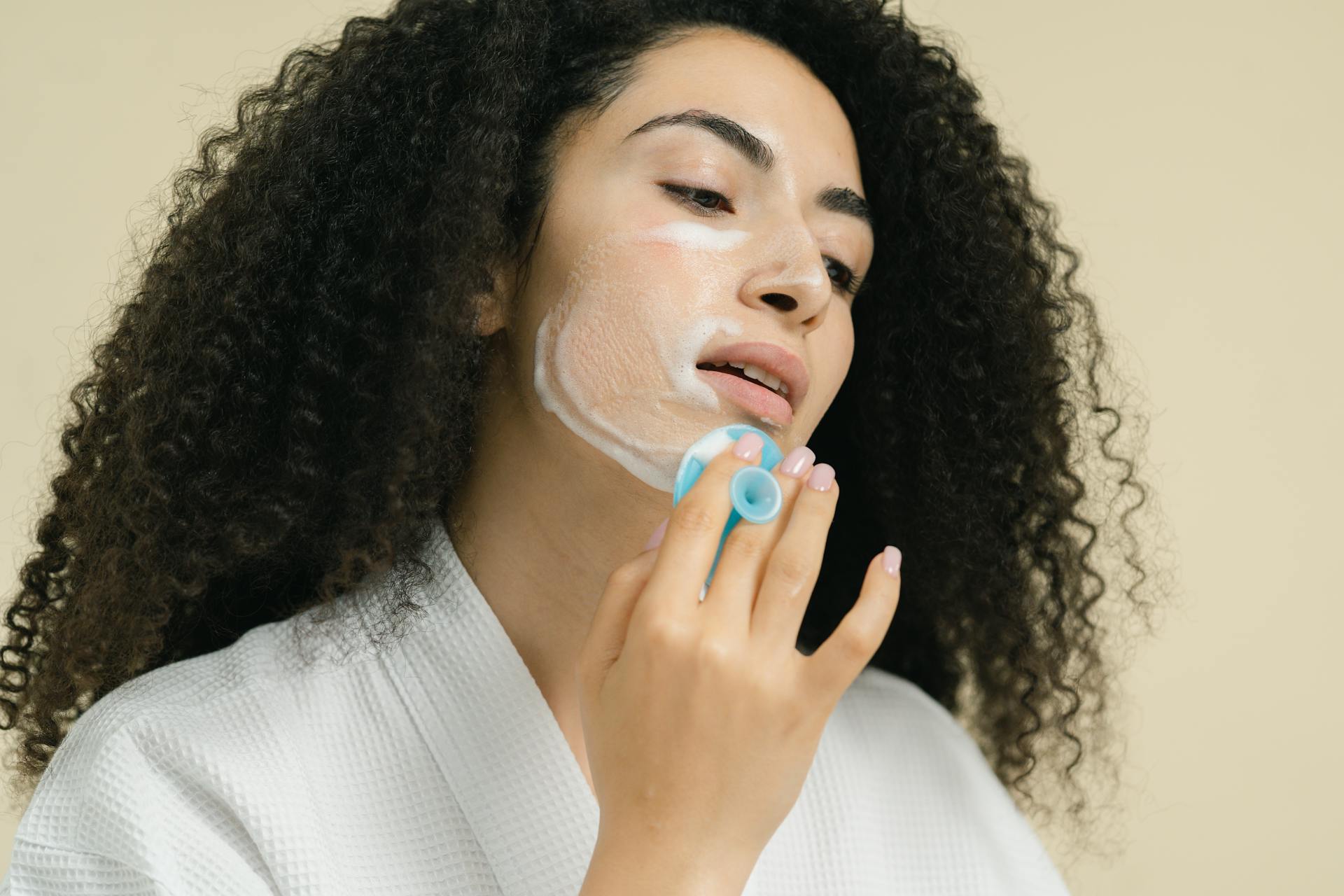
- Apply a Rich Moisturizer After Showering
Right after showering, apply your moisturizer while your skin is still slightly damp. This helps lock in moisture more effectively. - Don’t Forget the Eye Cream
The skin around your eyes is very thin and prone to dryness. Use a gentle eye cream to keep this area hydrated and reduce puffiness. - Weekly Hydrating Masks
Using a hydrating mask once a week can make a big difference. Look for masks with ingredients like aloe vera, cucumber, or honey for extra hydration. Sephora’s range of hydrating masks offers good options.
Also Read: Best Skincare Routine for Dehydrated Skin
Section 5: Additional Tips for Different Skin Types
Tailoring Winter Skincare to Your Skin Type
- For Dry Skin
Use oil-based moisturizers and rich creams. Avoid products with alcohol, which can dry out the skin further. - For Oily Skin
Even oily skin can get dehydrated in winter. Use lightweight, water-based moisturizers and avoid heavy creams. Gel-based products can provide hydration without clogging pores. - For Sensitive Skin
Opt for fragrance-free and hypoallergenic products. Sensitive skin may react to cold weather by becoming red and irritated, so gentle products are a must. - For Combination Skin
Use a lightweight moisturizer on oily areas like the T-zone and a richer cream on drier areas like the cheeks.
Section 6: Protecting Your Lips and Hands
How to Care for Other Sensitive Areas
- Lips
Apply a hydrating lip balm with SPF protection throughout the day. Try using a balm with natural ingredients like beeswax or shea butter, as found in Burt’s Bees Lip Balm.
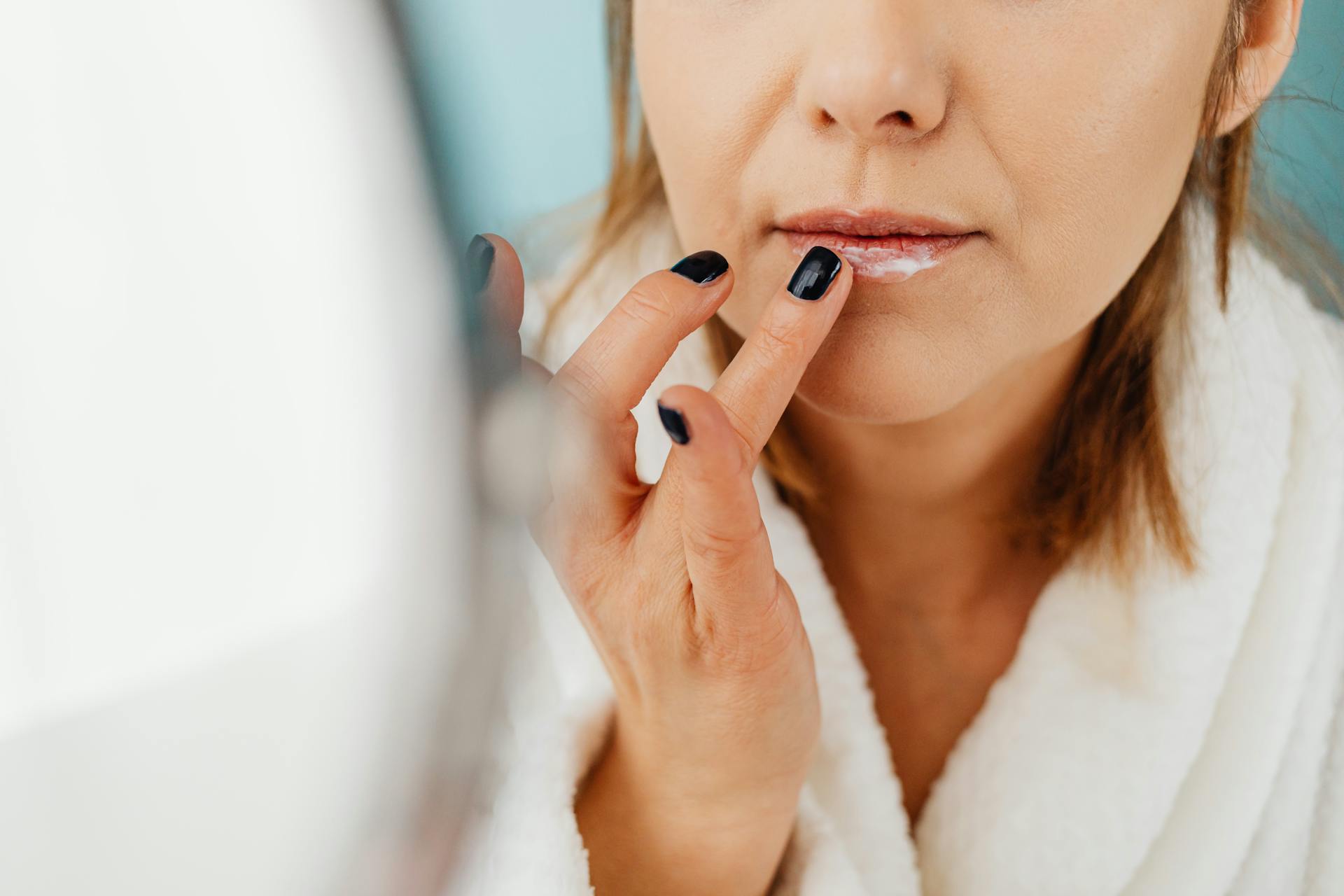
- Hands
Hands can get particularly dry in winter due to frequent washing. Use a hand cream with ingredients like glycerin or shea butter after washing your hands. Neutrogena Hand Cream is a great choice for dry hands.
Section 7: Dealing with Winter Skin Conditions
Managing Winter Eczema, Rosacea, and More
- Eczema
Eczema flare-ups can worsen in winter. Use fragrance-free and gentle products, moisturize frequently, and avoid hot showers. If you experience severe symptoms, consult your dermatologist. - Rosacea
Cold wind and temperature changes can trigger rosacea. Protect your face with a scarf and avoid harsh exfoliants. Look for rosacea-friendly skincare at La Roche-Posay. - Psoriasis
Winter dryness can worsen psoriasis. Use a thick, fragrance-free moisturizer and consider taking Vitamin D supplements, as the lack of sunlight in winter can impact flare-ups.
Conclusion
Embrace Winter with Healthy, Glowing Skin
Winter doesn’t have to mean dry, dull skin. By understanding the challenges cold weather brings and following these simple tips, you can keep your skin looking and feeling its best all season long. A few extra steps in your skincare routine can make all the difference in how your skin looks and feels during winter. Don’t forget to check out the recommended products and skincare brands for added support in your winter skincare journey.
Happy winter and happy skin!
FAQ: Why Your Skin Looks Worse in Winter and How to Manage It
1. Why does my skin get so dry in winter compared to other seasons?
Answer: In winter, both the cold outdoor air and indoor heating systems create an environment with very low humidity, which causes the skin to lose moisture faster than usual. This dryness impacts the skin’s protective barrier, leaving it more vulnerable to moisture loss and environmental damage. Our skin naturally produces oils that keep it hydrated, but cold temperatures slow down this process. Without enough moisture in the air, skin can’t stay hydrated, leading to dryness, tightness, and flakiness. Investing in a humidifier can help counteract the effects of dry air indoors, adding essential moisture to your environment.
2. How does indoor heating affect my skin in winter?
Answer: While indoor heating keeps us warm, it also dries out the air inside our homes, which can strip the skin of its natural moisture. Dry air causes water to evaporate from the skin’s surface, making it feel tight, flaky, and sometimes itchy. Central heating systems, space heaters, and fireplaces all contribute to this lack of moisture. To combat this, you can use a humidifier to add moisture back into the air, which helps prevent skin from drying out. It’s also essential to apply a thick moisturizer regularly, especially before bed, to lock in hydration while you sleep.
3. Why do I experience more redness and sensitivity in winter?
Answer: Winter weather can be harsh on the skin, especially if you have sensitive skin or a condition like rosacea. Cold winds and low temperatures irritate the skin’s protective barrier, leading to redness and heightened sensitivity. Constant shifts between cold outdoor air and warm indoor air can also stress the skin, causing blood vessels to expand and contract quickly, which can lead to redness and irritation. Using products designed for sensitive skin and wearing a scarf to protect your face from the wind can help minimize this reaction.
4. What ingredients should I look for in a winter moisturizer?
Answer: Winter moisturizers should include ingredients that not only hydrate but also lock moisture into the skin. Look for products with humectants like hyaluronic acid and glycerin, which draw moisture into the skin. Ceramides are essential for restoring the skin’s barrier, preventing moisture loss. Shea butter, squalane, and oils like jojoba or argan are excellent for adding a protective layer to the skin. These ingredients work together to keep skin hydrated and protected from harsh winter conditions. Thicker, cream-based moisturizers are often more effective in winter than lighter lotions.
5. Should I still wear sunscreen during winter?
Answer: Yes, sunscreen is essential year-round, even in winter. While UVB rays (responsible for sunburn) are weaker in winter, UVA rays (which cause skin aging and can penetrate through windows) are still present and can damage your skin. Snow can reflect up to 80% of UV rays, intensifying exposure. A broad-spectrum sunscreen with SPF 30 or higher is recommended, even on cloudy days. Apply it to all exposed areas, including your face, neck, and hands, to protect against premature aging and skin cancer.
6. Why do my lips get chapped more easily in winter?
Answer: The skin on your lips is thin and lacks oil glands, making it especially vulnerable to drying out. Cold air and wind, combined with indoor heating, cause lips to lose moisture quickly. Licking your lips in an attempt to moisten them can actually make chapping worse, as the water evaporates and further dries them out. To prevent chapping, use a lip balm with ingredients like beeswax, shea butter, or petroleum jelly, which create a barrier against moisture loss. Reapply throughout the day, and consider using a balm with SPF protection as well.
7. How can I prevent my hands from becoming dry and cracked?
Answer: In winter, our hands often suffer from dryness because they are frequently exposed to cold air and are washed multiple times a day. To prevent dryness, choose a gentle, moisturizing hand soap and avoid overly hot water, as it can strip your hands of natural oils. After washing, pat your hands dry and immediately apply a rich hand cream. Look for creams with ingredients like glycerin, shea butter, and ceramides. Wearing gloves when you go outside and when washing dishes or cleaning can also protect your hands from cold air and harsh chemicals.
8. Is it a good idea to exfoliate in winter, or can it make dryness worse?
Answer: Exfoliating in winter can be beneficial, but it’s essential to be gentle. Exfoliating removes dead skin cells that can make skin look dull and helps your moisturizer penetrate more effectively. However, over-exfoliating or using harsh scrubs can strip away the skin’s natural oils, causing further dryness and irritation. Aim to exfoliate only once or twice a week and choose gentle exfoliants, like chemical exfoliants containing lactic or mandelic acid, which are less abrasive than physical scrubs. Always follow up with a moisturizer to protect your skin’s barrier
9. How can I deal with “winter itch” or itchy skin during colder months?
Answer: Winter itch is often caused by dryness and a weakened skin barrier. To reduce itching, avoid hot showers, as they strip natural oils from the skin. After showering, pat your skin dry and apply a thick moisturizer immediately to lock in moisture. Look for products with colloidal oatmeal, which has anti-inflammatory properties and can soothe irritated skin. Adding a humidifier to your bedroom can also help by preventing the air from becoming too dry. If itching persists, you may want to use a mild, fragrance-free anti-itch lotion or consult a dermatologist for further options.
10. What’s the best way to adjust my skincare routine for winter?
Answer: In winter, you’ll need a more hydrating skincare routine to protect your skin from dryness and environmental stress. Start with a gentle, non-foaming cleanser that doesn’t strip the skin’s oils. Follow up with a hydrating serum, such as one with hyaluronic acid, to help lock in moisture. Opt for a thicker, cream-based moisturizer instead of a lighter lotion to create a stronger barrier against moisture loss. Don’t forget to add sunscreen, even if it’s cloudy, and use a hydrating lip balm. You may also want to incorporate a nourishing face oil at night to lock in hydration.
